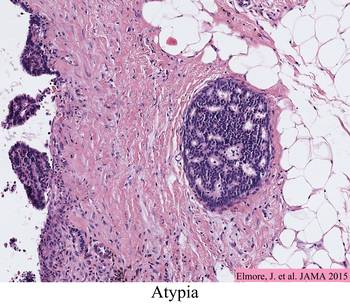Author Interviews, Breast Cancer, CMAJ, Pain Research / 13.07.2016
Younger Breast Cancer Patients With Radiation and Node Dissection More Likely To Have Post-Op Pain
MedicalResearch.com Interview with:
Jason Busse PhD
Department of Anesthesia
Department of Clinical Epidemiology & Biostatistics
McMaster University
Hamilton, ON
MedicalResearch.com: What is the background for this study? What are the main findings?
Response: Persistent pain after breast cancer surgery affects up to 60% of patients. Early identification of those at higher risk could help inform optimal management. We conducted a systematic review and meta-analysis of observational studies to explore factors associated with persistent pain among women who have undergone surgery for breast cancer. We found that development of persistent pain after breast cancer surgery was associated with younger age, radiotherapy, axillary lymph node dissection, greater acute postoperative pain and preoperative pain. Axillary lymph node dissection increases the absolute risk of persistent pain by 21%, and provides the only high yield target for a modifiable risk factor to prevent the development of persistent pain after breast cancer surgery.
(more…)

 Jayant S Vaidya MBBS MS DNB FRCS PhD
Professor of Surgery and Oncology,
Scientific Director, Clinical Trials Group,
Division of Surgery and Interventional Science,
University College London
Whittington Health - Clinical Lead for Breast Cancer
Royal Free Hospital
University College London Hospital
MedicalResearch.com: What is the background for this study? What are the main findings?
Prof. Vaidya: TARGIT-A randomised clinical trial (
Jayant S Vaidya MBBS MS DNB FRCS PhD
Professor of Surgery and Oncology,
Scientific Director, Clinical Trials Group,
Division of Surgery and Interventional Science,
University College London
Whittington Health - Clinical Lead for Breast Cancer
Royal Free Hospital
University College London Hospital
MedicalResearch.com: What is the background for this study? What are the main findings?
Prof. Vaidya: TARGIT-A randomised clinical trial (